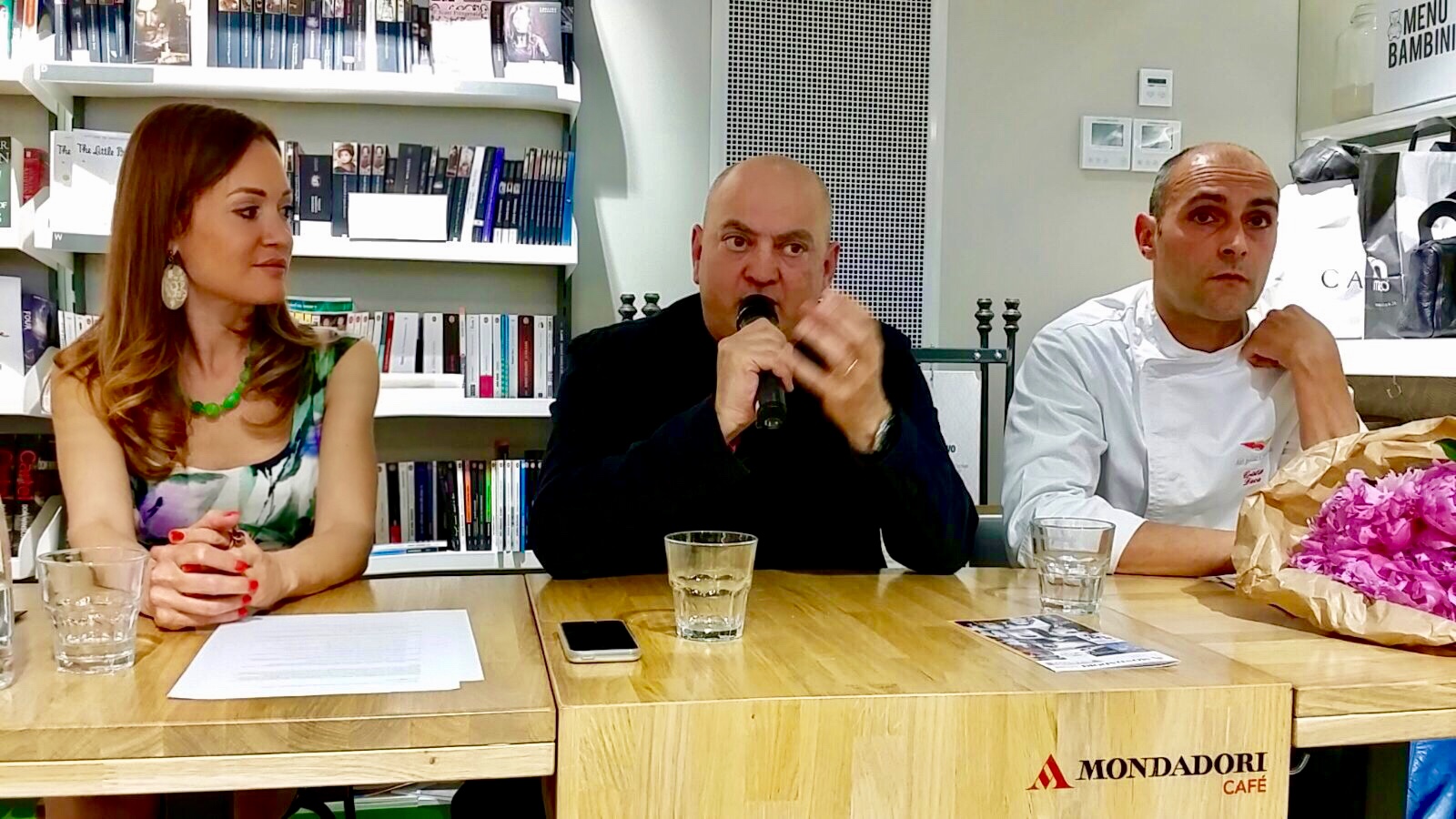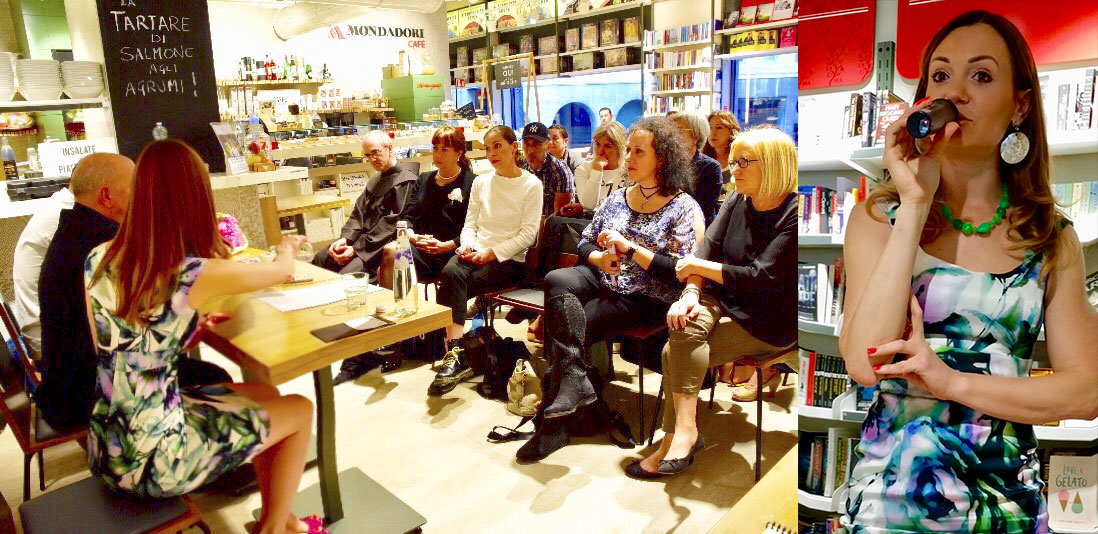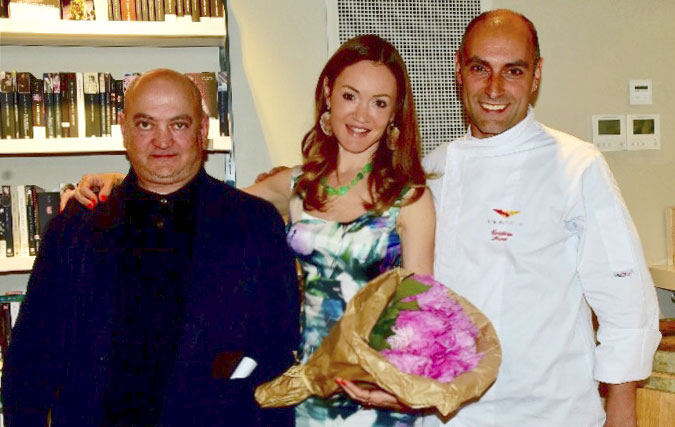
THE DECALOGUE TO STAY LONGER IN HEALTH AND WELLNESS?
HERE ARE THE 10 RULES OF DR. LUCIO LORETO.
Dr. LUCIO LORETO, Homeopath and Co-director of the groundbreaking anti-ageing research and prevention centre “Villa Paradiso, Medical Spa” in Gardone Riviera, and Villa Paradiso’s Chef CRISTIAN DUCA are going to give us the healthy and enjoyable DECALOGUE, in an emotional and light journey through food and body.
Dr. Loreto described the rules for healthy nutrition and good integration, and outlined our physiological needs according to seasons, although diet is not something seasonal but refers to the way we take care of our body not only with food, but with a lifestyle including food, rest and excercise.
Specifically, the heat makes the body lose minerals and vitamins and increases the alteration of symbiont bacteria, that normally are “friendly” bacteria living in our body, intestines, mouth, and skin but with increasing temperatures they must be maintained in good condition.
Moreover, hormones change naturally: in winter cortisol increases, causing swelling and water retention; in summer, the growth hormone and thyroid activity increase.
“In order to look ahead, we need to retrieve what we have behind”. Therefore, virtuous dietary models are not found in trendy and advertised diets but in the Mediterranean diet. Research at Harvard University found it the suitable to almost any situation, because it blends all its components in any meal, to ensure optimal fuel to our body in any condition. We have always eaten a little bit of everything in our Mediterranean culture. To summarise, any food dish should include a balance of 50% carbohydrates and proteins and 50% vegetables, leaving fruits as a snack during the day. This is the “My Plate” diet required by Michelle Obama as food regime to serve in American nursery and school canteens.
Chef Cristian introduced the concept ofpreventive metabolic cuisine replacing the concept of healthy cuisine and relying on scientific findings. It promotes high quality raw materials and their respectful cooking, because chemical additives and colorings are not the only things causing diseases. A diet full of calories, fats, salt, white sugar, sausages, and read meat is also harmful.
This type of cuisine is deemed to prevent diseases and metabolic disorders, such as diabetes, hypercholesterolemia, hypertension, and obesity that result from low nutritional capacity. Indeed, food acts like medications, triggering chemical reactions in the body.
Preventive cuisine must be tasty, attractive, and healthy. We need to be educated in cooking, respecting medical guidelines.

The Chef also explained that the seasonal menu is no longer necessary because we can find any fresh, nutritional food 24 hours a day over the entire year, although we live in an environment with seasonal and climate changes that affect the supply of raw materials also according to human biological needs in a specific period of the year.
In summer we need to integrate vitamins and mineral nutrients and we are keener to cook simple and light dishes and to eat more fruits and vegetables, fresh food. We tend to perform healthier cooking that disinfect and sterilise food without denaturing them. As an example, steaming preserves nutrients, vacuum cooking or frying with peanut or high oleic sunflower oil seals pores and maintains nutrients. Using rice flour would be preferable, with 1 litre oil per 100g of food, coming straight from the fridge to the frier at 170°C, in order to induce thermal shock. Olive oil must be stored in a place far from the stove, because it can oxydate with oxygen and heat, losing its important properties. Saturated, hydrogenated oils and fats are forbidden, e.g., margarine and tropical varieties.
Another healthy way of cooking vegetables is to toss them on high heat in a non-stick pan. Before starting cooking, warm up the pan, apply some oil and wipe it with some kitchen paper. Boiling is not advised because it undermines all active principles.
It is highly recommended to cook vegetables without chopping them, so as not to expose little pieces to the impact with 100°C steam. For example, carrots maintain extremely high levels of beta-carotene when they are cooked, because they are bio-available. Thus, it is best to add some olive oil as beta-carotene is fat-soluble.
Cleaning vegetables is very important. They must be washed carefully and quickly under running water, without leaving them soaking for hours, as they would lose most of their water-soluble vitamins.
The doctor explained that each type of food has different colours and flavours, not because they have been “dyed” but because pigments correspond to different vitamins and mineral nutrients. The most advisable diet is then the one that includes all colours and flavours, in order to provide the organism with all the components, taking different nutrients from different food, although people do share biological common basis but have different individual features.
An excessive consumption of beta-carotene can make the skin look orange and in the case of smokers, it increases the risk of bowel cancer in women and prostate cancer in men. Astaxanthin (containing a seaweed) is a powerful antioxidant that protects from photosensitisation, is often used during summer, and makes cooked shrimps turn red.

- always match carbohydrates and proteins in each meal, because the 1920 hay dietdid not consideratescientific composition of foods. Therefore, it was not balanced;
- banish refined sugar that is addictive and undergoes 7 to 8 chemical refining processes, which make it toxic, like a drug. Replace it with erythritol or cane sugar;
- limit the amount of red meat and animal proteins and, especially in summer, avoid alcohol. Half a glass of wine per day is allowed only if included in a meal, in order to avoid enzymatic disorders;
- never skip meals, not even breakfast, as it wakens the body up after its night rest. Provide your organism with energy every 4 or 5 hours, without gorging during the 3 main meals. Have small snacks between one meal and another, even before sleeping, including Omega 3-rich fresh or dried fruits, sticking to a regular time schedule in order for the enzymatic system to work at a regular pace.
- provide abundant water supply, especially in summer. Highly hydrating water is the one absorbed from fruits and vegetables. The water we drink is useful to activate renal purification and mineral water having a 6.5 to 7.2 pH (i.e., amphoteric water) is ideal. It is preferable to drink said water between 9 a.m. and 5 p.m., which is when the kidneys work the most and cleaning reaches its top levels. The amount of water should be reduced during meals or integrated with bicarbonate-calcium digestive water that enhances biliary activity;
- exceed in your daily supplementation of vitamin C and fibre, almost 25g per day, from carbohydrates and legumes.
However, individual food intolerances and biochemical conditions should be analysed, to choose a dietary model tailored to each organism.
Supplementation means to provide from outside all the components that you cannot receive from your diet, or whose amount you wish to increase, such as minerals and vitamins. This is of utmost importance when temperatures grow higher, as cellular stress increases and we need adaptogen substances that boost our response to stressful conditions, such as ginseng, robiola or eleutherococcus.
It is extremely important to maintain the balance of our symbiotic system; it is surprising that in a normal 55 kg weight body the number of bacteria and microorganisms living on our hair, skin, and intestines is 1.5 kg! They are called symbionts when they contribute to our wellness, digestion, absorption, waste disposal. Otherwise, they may ferment and increase the level of inner alcohol, making us wander around with some sort of “distillery” in our stomach or with an inflammatory and alterating “hangover” like the feeling we experience when we have had too many sweets. This can result in allergies or food intolerances.
Probiotics is understood as the presence of bacteria living in our bowel. Bioprotics refers to bacteria living in our mouth. In summer both of them need to be supplemented, in order to maintain the organism’s balance. For instance, gluten is a protein that stabilises our intestinal microbial flora. Therefore, it is advisable to take it, unless you suffer from coeliac disease or have methabolism or enzyme intolerances or sensitivity. It is to be pointed out that rice includes more arsenic, compared with pasta. The same applies to milk as well. As our tradition is rich in cheese and dairy products, this food is not to be banished but its amount needs to be reduced. We can also resort to high-digestible milk that is sweeter, implying that we do not need to add sugar.
Some bacteria are able to turn vegetable cellulose into sugars and fats. Therefore, if we eat vegetables alone, we might experience intestinal fermentation. Choosing between raw or cooked vegetables is a personal choice because it affects individual microbial flora and depends on the impact of sugarglycemic indexon insulin. Fruits are ideal to avoid swelling, as they move faster throughout our bowels. Thus, it is preferable to eat them before meals.
As for the consumption of salt, which limits stomach acidity, we can avoid food grade salt and turn to other types of salt, such as potassium salts, that result in less water retention and renal overload, and invigorate our body. Therefore, by adding alkalising salts as a supplement, we can compensate for food acidity resulting from high consumption of legumes. We may also drink fresh lemon juice in the morning on an empty stomach. Please, do not trust Himalayan salts, as they are thousands of years old and rich in heavy metals. Low sodium salt (i.e., iodised salt) is preferable, max. 7 gr per day.
An Ancient Master’s quotation said: “You cannot be more that what you are, but you can be the best of who you are”.






